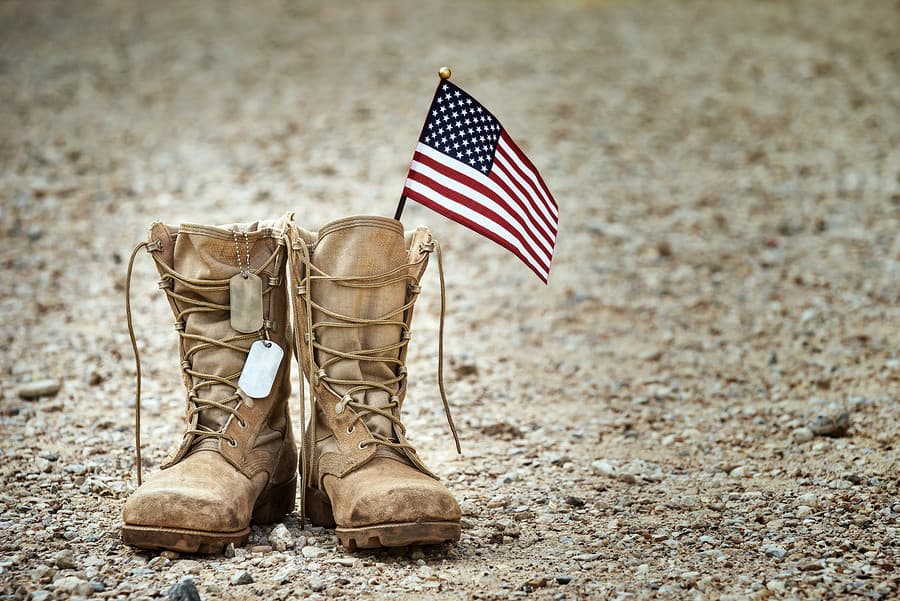From 2000 to 2005, I served in the U.S. Marine Corps, which included a combat tour in Iraq. Since then, I have worked in various capacities in HR and talent acquisition, including recruiting talent globally for experienced-hire roles, as well as early-career roles, for BP for the past seven years.
What I’ve come to realize is that every company wants to hire a veteran, but it can sometimes be a struggle for HR or TA professionals with non-military backgrounds to see a veteran’s resume and know how those skills can immediately translate to their business.
Recruiting Veterans in the Energy Sector
It can be especially challenging to showcase the energy industry as an attractive career path to veterans coming out of the military.
Today, our service members have sophisticated roles and are working with multimillion dollar equipment on complex assignments. BP has many of these offerings, whether it’s managing a platform, refinery, trade portfolio, or building new technologies (what kind of recruiter would I be if I didn’t plug my employer here!).
However, when veterans take that post-military step, they are often instead drawn to careers at technology companies that position themselves well in this space. Although the energy sector offers many of the same exciting opportunities, overall the field has so much room to grow in how we market ourselves.
Mistakes When Recruiting Veterans
One of the biggest mistakes that recruiters often make is assuming that veterans are only suited for hourly-type roles that are transactional, technical, or manual-labor-focused. This mistake is made because recruiters or hiring managers often do not understand the veteran’s resume and how their skills translate to a role they are filling. While companies want to have the lens of a veteran-friendly organization, they usually lack understanding of veterans’ skill sets.
If you find yourself in this situation, I recommend seeking out someone within your organization who has served in the military to get their feedback on the resume. Even if the veteran does not work in recruiting or HR, your colleague can help explain the candidate’s experience, translate technical terms, and give feedback on where the candidate could excel in the business.
For example, not long ago we were looking to fill a senior-level role and a U.S. Marine Corp veteran applied. He recently left active duty and was serving in the reserves. He had the leadership traits, but on paper his technical experience was not translating to the role.
Initially the hiring team did not include him in the top 10 list of candidates to consider. But I knew if they interviewed him, his soft skills and leadership background would make him a perfect fit. The team agreed and he was the only candidate who interviewed via video conference. The rest is history — this veteran was the shining star of the entire candidate pool.
I have such confidence in our veteran community that I am willing to give veterans a chance to go through the interview process. I would encourage other companies and recruiters to do the same. Even if skills do not translate on paper, nine times out of 10 you will be so impressed by their background that you’ll want to find a role for them.
The Importance of Partnerships
I highly encourage training and development people to understand the value veterans bring and how their skill sets can apply to different types of roles. Most of the time, a veteran’s resume does not include their vast amount of experience. The more TA professionals can do to familiarize themselves, the better. Even more, if your organization has the resources to have a veteran-specific recruitment team, those have been very successful, as well. Those recruiters are fully tuned in to the amazing veteran talent pool available.
It’s also worth pointing out that while the military does a fantastic job at training people to be great service members, its program is shaky when it comes to helping members go back to civilian life. This is where having great partnerships is important. At BP, we work with Hiring Our Heroes, American Corporate Partners, and Student Veterans of America to offer career webinars, hiring events, and more to help veterans transition more successfully.
Primed for Success
When people enlist, accountability is at the forefront of their Day One military training. Similarly, the energy industry requires teamwork and collaboration across complex projects so employees must be accountable for their business to be successful. Veterans bring that and more. They understand that you are responsible for the person next to you.
Additionally, veterans are extremely efficient under pressure, understand the chain of command, and respect procedures. While many have not been in a corporate environment, they understand different levels of organizational framework and the responsibility for those above and below you.
Finally, energy companies want to know they can trust their people with confidential or proprietary information. Integrity is taught on Day One of military training, and it often follows through with veterans for the rest of their lives.
As TA professionals, it is our obligation to build relationships with military veterans even when we are not hiring for a specific role. Building a candidate pool is key to getting our qualified and talented servicemen and -women in organizations where they can make an impact.
